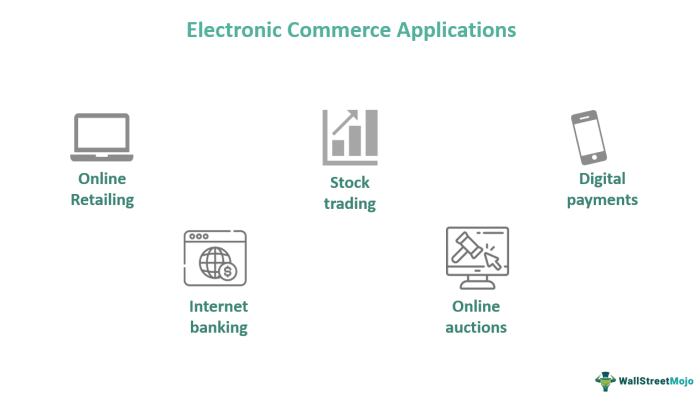Legitimate Online Income Streams

Making money online is a viable option for many, offering flexibility and potential for high earnings. However, navigating the landscape of online opportunities requires discernment to identify legitimate and sustainable income streams. This section Artikels several proven methods, categorized by skill level and detailing startup costs, to help you choose the path best suited to your abilities and resources.
Proven Online Income Methods
Choosing the right online income stream depends heavily on your existing skills and the time you’re willing to invest. The following table categorizes ten proven methods, offering a range of options from beginner-friendly to advanced strategies.
| Method | Skill Level | Time Commitment | Potential Earnings |
|---|---|---|---|
| Online Surveys | Beginner | Flexible, part-time | Low to moderate ($5-$50 per hour) |
| Social Media Management | Beginner/Intermediate | Variable, 5-20 hours/week | Moderate to high ($20-$100+ per hour) |
| Freelance Writing | Beginner/Intermediate | Flexible, project-based | Moderate to high ($25-$100+ per article) |
| Virtual Assistant Services | Beginner/Intermediate | Variable, client-dependent | Moderate to high ($20-$50+ per hour) |
| Online Course Creation | Intermediate/Advanced | High initial investment, ongoing maintenance | High ($1000+ per course) |
| Affiliate Marketing | Intermediate/Advanced | Variable, ongoing effort | Moderate to very high (variable commission rates) |
| E-commerce Store | Intermediate/Advanced | High initial investment, ongoing management | High to very high (variable based on sales) |
| Web Development | Advanced | Variable, project-based | High to very high ($50-$200+ per hour) |
| Software Development | Advanced | Variable, project-based | Very high ($100+ per hour) |
| Blogging | Beginner to Advanced (depending on monetization strategy) | Variable, ongoing content creation | Moderate to very high (depends on traffic and monetization) |
Startup Costs for Online Income Streams
Startup costs vary significantly depending on the chosen method. Online surveys require minimal investment, potentially just the time to sign up for various platforms. Social media management might necessitate a small investment in scheduling tools. Freelance writing requires minimal upfront cost, primarily investing in a good computer and internet access. Virtual assistant services similarly require minimal startup costs.
Creating online courses involves costs associated with course creation software, video editing tools, and potentially marketing. Affiliate marketing involves website or social media platform costs, and e-commerce stores require substantial investment in inventory, website development, and marketing. Web and software development typically requires only a computer and relevant software licenses. Blogging requires a domain name and hosting, which can be relatively inexpensive.
Freelancing vs. Starting an Online Business
Freelancing and starting an online business represent distinct approaches to online income generation. Freelancing involves offering services on a project-by-project basis, typically to multiple clients. This offers flexibility and a relatively low barrier to entry. However, income can be inconsistent, and client acquisition requires ongoing effort. Starting an online business, on the other hand, involves building a brand and a more long-term strategy.
This offers the potential for higher and more consistent earnings but requires a larger upfront investment in time, money, and effort. A successful online business often involves creating a product or service and establishing a loyal customer base. The choice depends on individual risk tolerance, financial resources, and long-term goals.
Avoiding Online Scams and Risks

The allure of making money online is undeniable, but it’s crucial to navigate this space cautiously. Many schemes prey on those seeking financial independence, promising unrealistic returns and employing deceptive tactics. Understanding common scams and implementing robust safety measures is paramount to protecting your time, money, and personal information.It’s essential to approach online money-making opportunities with a healthy dose of skepticism and thorough due diligence.
Don’t let the promise of quick riches cloud your judgment; instead, prioritize verifiable information and established platforms. This section will equip you with the knowledge and strategies to identify and avoid online scams, safeguarding your financial well-being.
Common Online Scams Targeting Individuals Seeking Online Income
Numerous scams target those seeking online income. Awareness of these tactics is the first line of defense.
- Get-rich-quick schemes: These often involve promises of exorbitant returns with minimal effort, such as making thousands of dollars a day with little to no work. Examples include unrealistic affiliate marketing programs promising passive income without any effort or expertise, or high-yield investment programs that guarantee impossibly high returns.
- Work-from-home scams: These typically involve upfront fees for training, materials, or licenses, often promising high pay for simple tasks like data entry or assembly. These opportunities rarely deliver on their promises and often disappear after receiving payment.
- Fake online jobs: These often involve fraudulent companies posting job openings on various platforms. They may request personal information or banking details under the guise of onboarding or payment processing, ultimately leading to identity theft or financial loss.
- Pyramid and Ponzi schemes: These schemes rely on recruiting new members to generate income, rather than selling actual products or services. Early investors may see some returns, but the scheme eventually collapses, leaving most participants with significant losses.
- Phishing scams: These involve fraudulent emails or messages that appear to be from legitimate companies or individuals. They may request personal information, login credentials, or financial details, leading to identity theft or financial fraud.
Protecting Personal and Financial Information While Working Online
Safeguarding your personal and financial information is critical when working online. Employing these strategies will significantly reduce your risk.
Always prioritize strong passwords and use multi-factor authentication whenever possible. Avoid using the same password across multiple accounts. Regularly update your software and antivirus programs to protect against malware and phishing attacks. Be wary of suspicious emails or messages requesting personal information; legitimate companies will rarely ask for sensitive data via email. When using online payment platforms, ensure they are secure and reputable, indicated by HTTPS in the URL and security certifications.
Never share your banking details or credit card information with unfamiliar individuals or companies unless you are absolutely certain of their legitimacy.
Evaluating the Legitimacy of Online Business Opportunities
Before investing time or money in any online business opportunity, conduct thorough research.
Check the company’s reputation online through reviews and testimonials. Look for independent verification of their claims, and avoid opportunities with vague or exaggerated promises. Investigate the company’s registration and legal status; legitimate businesses will typically have readily available contact information and a physical address. Be wary of opportunities that require upfront payments for training or materials, especially if they guarantee unrealistic returns.
Consult with financial advisors or trusted professionals before making any significant financial commitments. A thorough investigation will help you discern genuine opportunities from fraudulent ones.
Developing Essential Skills

Making money online requires more than just a good idea; it demands a practical skillset. The digital landscape is constantly evolving, meaning continuous learning is crucial for sustained success. This section Artikels a curriculum for developing essential digital marketing skills and explores resources for acquiring other valuable online skills.
Digital Marketing Skills Curriculum
This curriculum provides a structured approach to learning the fundamentals of digital marketing, equipping individuals with the practical skills needed to succeed in the online world. The course is modular, allowing for flexible learning and focused skill development.
- Module 1: Foundations of Digital Marketing: This module introduces core concepts like target audience identification, marketing objectives, and the customer journey. Students will learn to analyze market trends and identify opportunities. Learning Objectives: Understand the digital marketing landscape, define target audiences, set SMART goals, and analyze market data.
- Module 2: Search Engine Optimization (): This module covers on-page and off-page techniques, research, and website optimization for search engines. Students will learn how to improve website ranking and organic traffic. Learning Objectives: Perform research, optimize website content for search engines, build high-quality backlinks, and track performance.
- Module 3: Social Media Marketing: This module explores various social media platforms and their effective use for marketing. Students will learn about content strategy, community building, and social media advertising. Learning Objectives: Develop and implement social media strategies, create engaging content, manage social media accounts, and analyze social media performance.
- Module 4: Pay-Per-Click (PPC) Advertising: This module covers the principles of PPC advertising, including campaign setup, targeting, and ad copywriting. Students will learn to manage and optimize PPC campaigns for maximum ROI. Learning Objectives: Create and manage PPC campaigns, target specific audiences, write effective ad copy, and track campaign performance.
- Module 5: Email Marketing: This module focuses on building email lists, creating effective email campaigns, and analyzing email marketing performance. Students will learn to nurture leads and drive conversions through email. Learning Objectives: Build email lists, create engaging email campaigns, segment email audiences, and analyze email marketing metrics.
- Module 6: Analytics and Reporting: This module covers the use of analytics tools to track marketing performance and make data-driven decisions. Students will learn to interpret data and use insights to optimize campaigns. Learning Objectives: Use analytics tools to track marketing performance, interpret data, and make data-driven decisions.
The Importance of Continuous Learning
The online world is dynamic. New technologies, platforms, and strategies emerge constantly. To remain competitive and successful, continuous learning is not just beneficial; it’s essential. Staying updated on industry trends, mastering new tools, and adapting to evolving consumer behavior are crucial for long-term success. For example, the rise of AI-driven marketing tools requires continuous adaptation and upskilling.
Ignoring this evolution can lead to obsolescence and lost opportunities.
Resources for Skill Development
Numerous resources are available for learning valuable online skills.
- Coding: Platforms like Codecademy, freeCodeCamp, and Coursera offer comprehensive coding courses covering various languages like Python, JavaScript, and HTML/CSS. Many resources provide project-based learning, allowing practical application of acquired knowledge.
- Graphic Design: Skillshare, Udemy, and Canva offer courses on graphic design principles, software like Adobe Photoshop and Illustrator, and creating visually appealing content. Practicing with personal projects and seeking feedback is crucial for improvement.
- Content Creation: Platforms like YouTube, Skillshare, and HubSpot offer tutorials on various content creation aspects, including writing, video editing, and podcasting. Experimenting with different content formats and analyzing audience engagement are key to refining skills.

